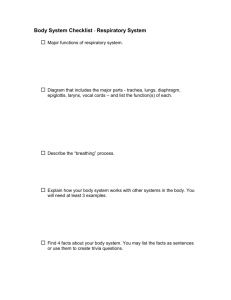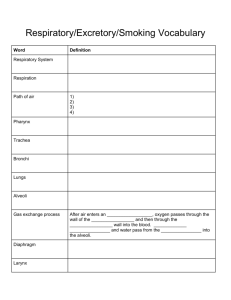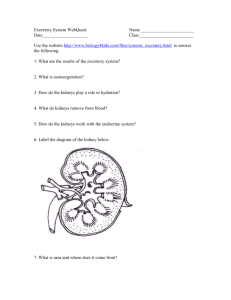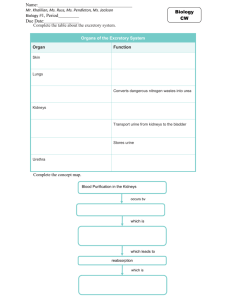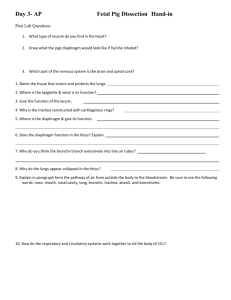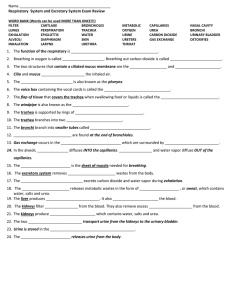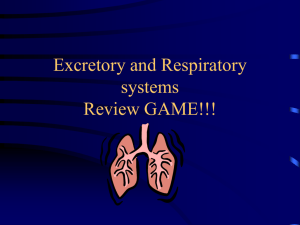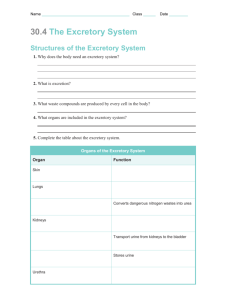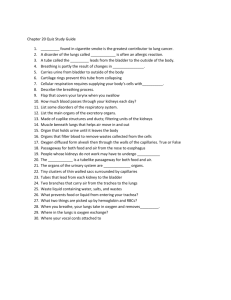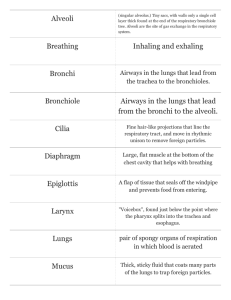Blue 5.1 5.3 Review
advertisement
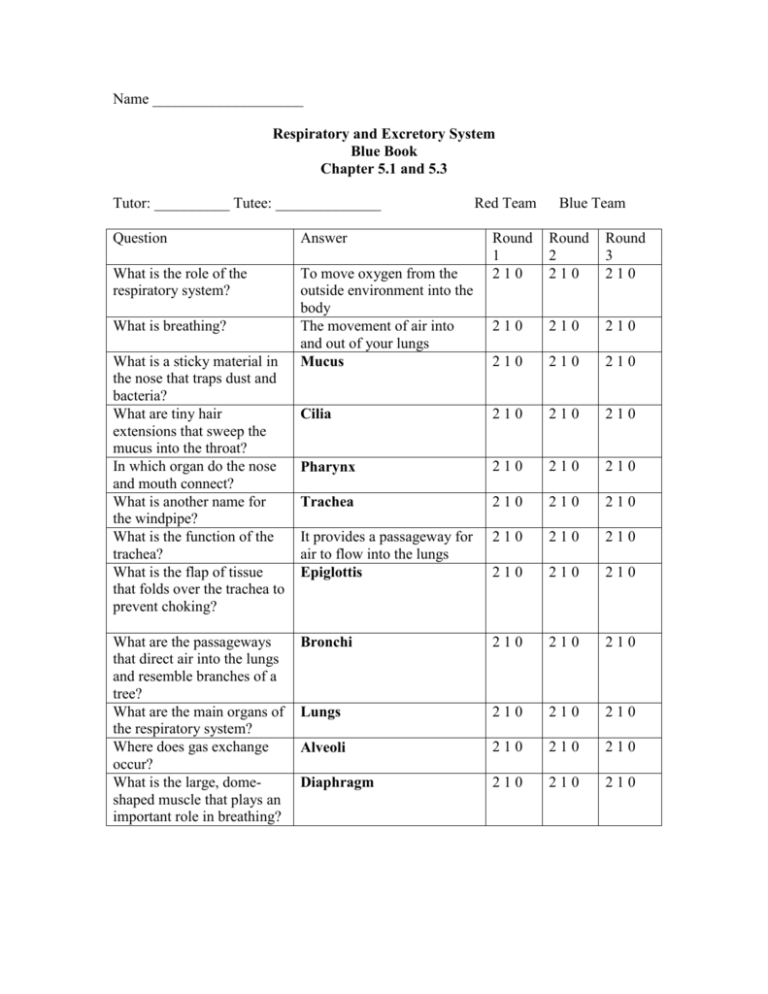
Name ____________________ Respiratory and Excretory System Blue Book Chapter 5.1 and 5.3 Tutor: __________ Tutee: ______________ Question Answer What is the role of the respiratory system? To move oxygen from the outside environment into the body The movement of air into and out of your lungs Mucus What is breathing? What is a sticky material in the nose that traps dust and bacteria? What are tiny hair extensions that sweep the mucus into the throat? In which organ do the nose and mouth connect? What is another name for the windpipe? What is the function of the trachea? What is the flap of tissue that folds over the trachea to prevent choking? What are the passageways that direct air into the lungs and resemble branches of a tree? What are the main organs of the respiratory system? Where does gas exchange occur? What is the large, domeshaped muscle that plays an important role in breathing? Red Team Blue Team Round 1 210 Round 2 210 Round 3 210 210 210 210 210 210 210 Cilia 210 210 210 Pharynx 210 210 210 Trachea 210 210 210 It provides a passageway for air to flow into the lungs Epiglottis 210 210 210 210 210 210 Bronchi 210 210 210 Lungs 210 210 210 Alveoli 210 210 210 Diaphragm 210 210 210 What happens when you inhale? What happens when you exhale? What is another name for the voice box? What are the vocal cords? What controls if you have a high voice or a deep voice? What is the role of the excretory system? What is urea? What are the major organs of the excretory system? What do your kidneys eliminate during excretion? What is a watery fluid produced by your kidneys? What are the two tubes that carry the urine from the kidneys to the urinary bladder? What is the sac-like muscular organ that stores urine? What is the small tube through which urine flows from the body? What are the tiny filtering structures inside the kidneys called? What are the other organs of excretion? The diaphragm moves down (contracts) The diaphragm moves up (relaxes) Larynx 210 210 210 210 210 210 210 210 210 Tissues that stretch across the opening of the larynx to produce your voice The length of your vocal cords To collect waste produced by cells and remove waste from the body The chemical that comes from the breakdown of proteins Kidneys 210 210 210 210 210 210 210 210 210 210 210 210 210 210 210 Urea, excess water and other waste materials Urine 210 210 210 210 210 210 Ureters 210 210 210 Urinary bladder 210 210 210 Urethra 210 210 210 Nephrons 210 210 210 Lungs and Skin 210 210 210 Total TOTAL
